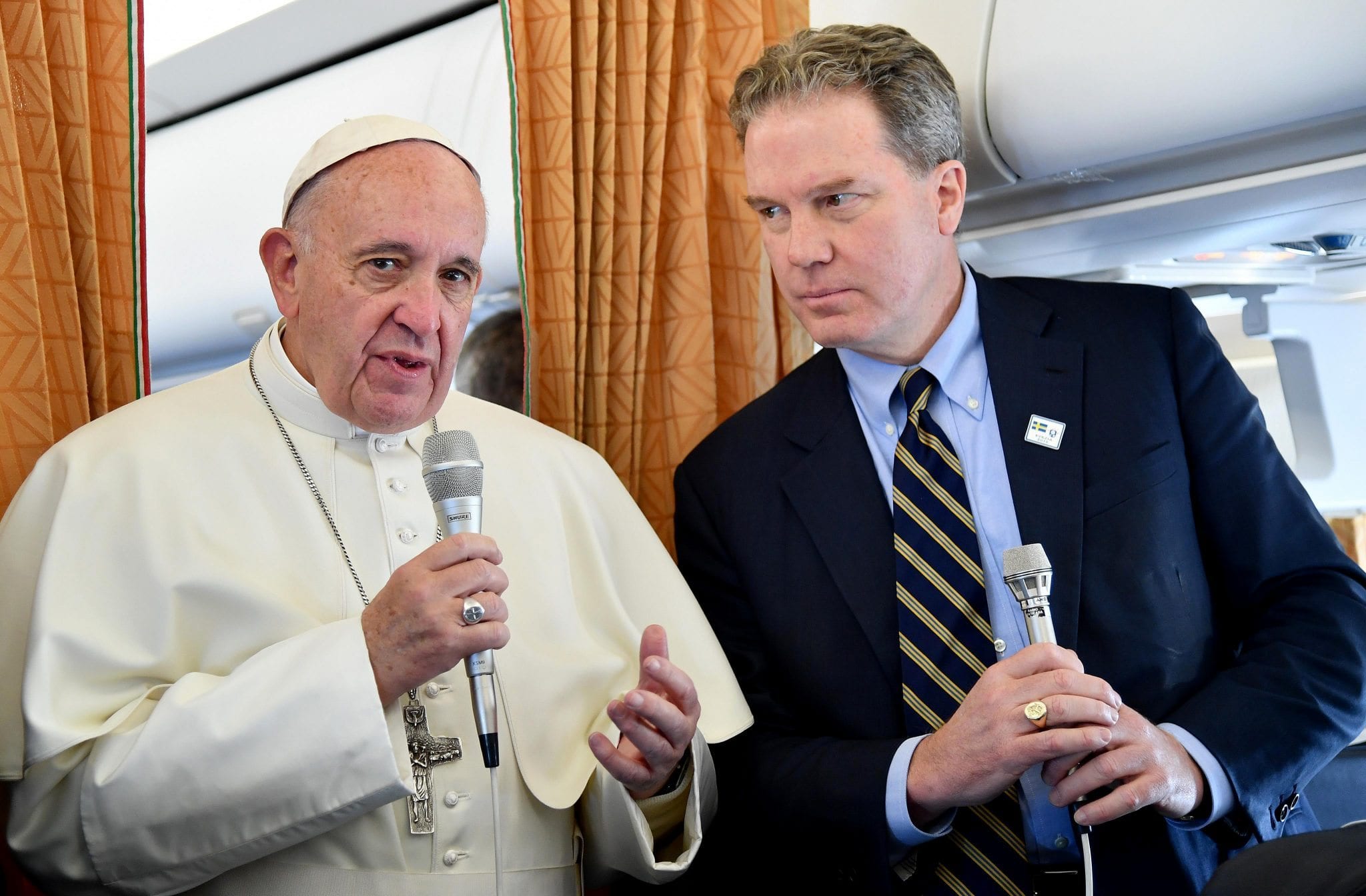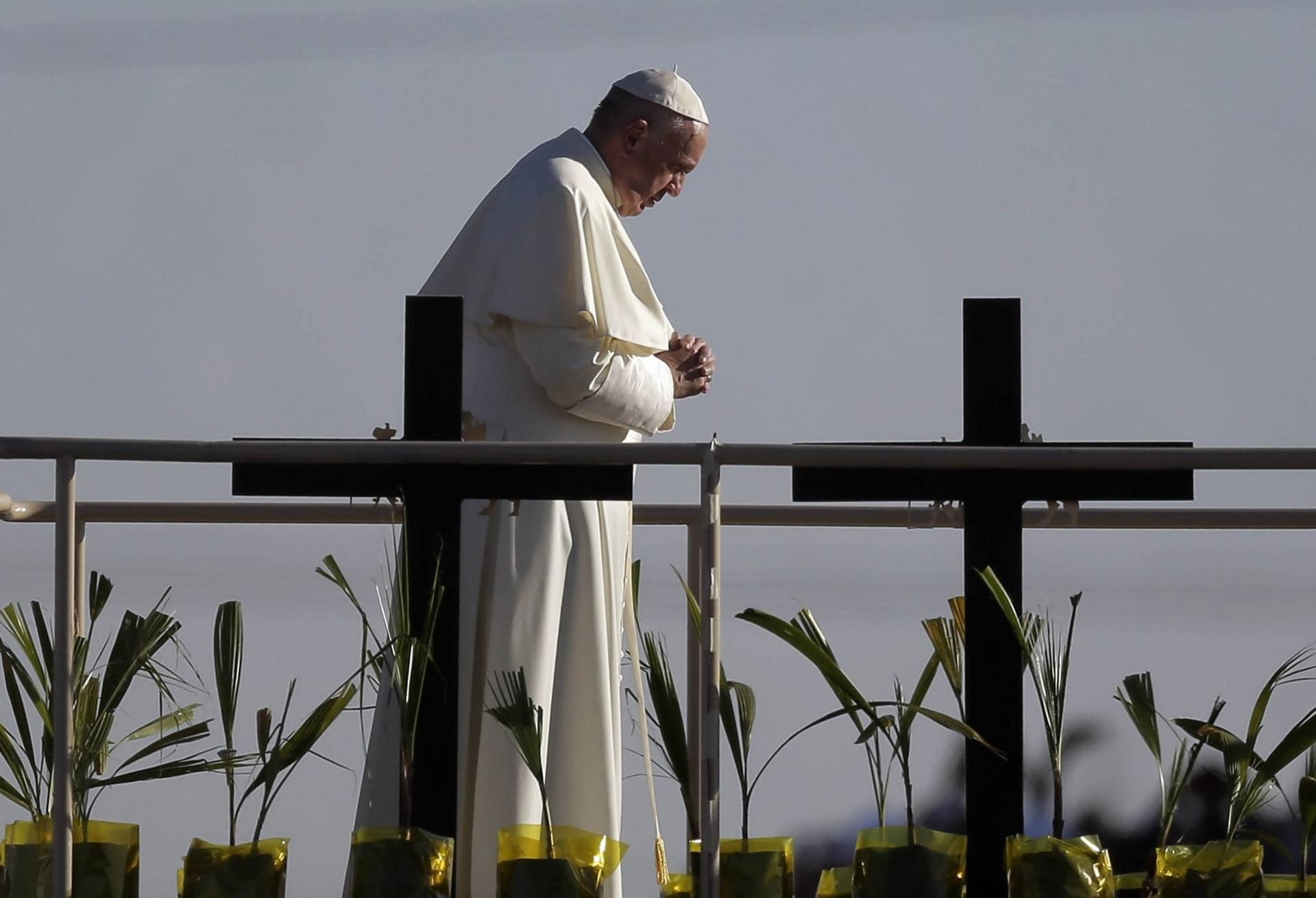ROME – Web-based news organizations tend to live and die by their traffic numbers, meaning their certified totals of unique visitors, visits, total page views, and so on. Page views are an especially important number for advertisers, since it translates into how many times their ads are seen by potential customers, and therefore how much you can charge for them.
I’m forever telling our small team at Crux that those traffic counts, while important, are an inexact measure at best of whether we’re doing the job we set out to do. I mean, while we were still part of the Boston Globe, one of the highest-traffic pieces we ever published was a silly wire story about a couple of dancing priests, and believe me when I say no one’s handing out any Pulitzer Prizes for it.
Nonetheless, 2016 has been a strong traffic year for Crux, and reviewing which stories packed the greatest punch is at least one way of taking a stroll down memory lane at the close of a remarkable, in some ways, almost surreal year.
To be honest, we only have hard data for our traffic beginning on April 1, which was the day we formally separated from the Globe and launched out on our own. However, we do have anecdotal impressions prior to that of which stories got the most play, so one way or the other, this countdown covers the entire year.
Herewith, then, the (unofficial) top ten Crux stories of 2016.

No, Internet, the Vatican is not a walled city
February 19
Famously, Pope Francis commented on Donald Trump on his way back from a stop at the U.S./Mexico border, saying that a politician who wants to build walls to try to keep out immigrants “is not a Christian.” That sparked a flurry of Internet comment, including a number of caustic observations about the fact that the Vatican itself is surrounded by walls. Crux’s Michael O’Loughlin debunked that myth, laying out how the Vatican, despite its walls, is actually remarkably accessible to the general public.
O’Loughlin, by the way, is now doing stellar work for our good friends at America, and his output is always well worth reading.
Pope’s family manifesto offers cautious opening on Communion
April 8
If Donald Trump was the bombshell in American politics in 2016, Amoris Laetitia, Pope Francis’s long-awaited document drawing conclusions from two Synods of Bishops on the family, was the Catholic thunderclap of the year, framing the terms of a ferocious debate that’s still underway. Crux’s Vatican correspondent Inés San Martín, as she typically is, was among the first out of the gate in reporting the content of the document in her vintage clear and comprehensive fashion.
Let’s face it: Americans just aren’t this pope’s favorites
May 20
In this column, I somewhat tongue-in-cheek suggested that Americans simply aren’t the nationality Pope Francis is thinking about when he gets out of bed in the morning, and suggested that’s probably a healthy experience for us, long accustomed to thinking of ourselves as the center of the universe. The piece was taken in some quarters as expressing American resentment of the pope, which wasn’t how I meant it, and also came before he appointed an American as his new spokesman, created three new American cardinals, and tapped an American to head his all-important department on Family, Laity and Life – all of which, frankly, undercut my original thesis anyway.

Pope nails three-point shot by naming American spokesman
July 11
Speaking of that American spokesman, veteran Time and Fox journalist Greg Burke, I called it the pontiff’s “Steph Curry moment,” meaning that he drained a dramatic three-point shot: Debunking impressions of being anti-American, showing that competence matters, and signaling openness to groups seen as conservative since Burke is a member of Opus Dei. Full disclosure: Burke is a longtime friend, so I’m probably not capable of real objectivity here, but I’m still proud of working a Steph Curry reference into my copy.
Pope Francis asks, where is God amid terrorism?
July 29
World Youth Day in Krakow, Poland, was the biggest Catholic event of 2016, drawing an estimated three million people to the city long associated with St. Pope John Paul II and St. Faustina Kowalska, who launched the Divine Mercy devotion in the early 20th century. Here, San Martín reports on a sober meditation delivered by Francis during a Way of the Cross ceremony, which came immediately after an elderly French priest named Father Jacques Hamel had been brutally slain by assassins who professed loyalty to the Islamic State.
Gold medal swimmer thanks nuns for her success
August 4
World Youth Day has often been compared to the Olympic Games, so it’s only fitting that this profile of gold medal swimmer Katie Ledecky by Crux’s national correspondent Mark Zimmermann makes the list. Zimmermann told the story of how after her win at the 2012 Olympics in London, Ledecky visited the Immaculate Heart of Mary sisters at their convent in Bethesda, Maryland, to thank the women religious who taught her at Little Flower School.
Pope calls gender theory a ‘global war’ against the family’
October 1
One of the intriguing themes of 2016 was the way in which Pope Francis sometimes swam against his own tide as a progressive reformer, firmly backing traditional Church positions on women priests, gay marriage, and, in this case, “gender theory,” used in Catholic parlance to refer to the idea that sexual identity is a social convention rather than something given in nature. San Martín captured the forceful language Francis used on the subject on his second day in Georgia, just before heading off to Azerbaijan.

With pope’s cardinal picks, Bernardin’s ‘seamless garment’ is back
October 9
When Pope Francis decided to hold a consistory for the creation of 17 new cardinals, he included three Americans: Blase Cupich of Chicago; Joseph Tobin, then of Indianapolis and now of Newark; and Kevin Farrell, then of Dallas and now heading the new Dicastery for Family, Laity and Life at the Vatican. I suggested that all three embody the legacy of the late Cardinal Joseph Bernardin of Chicago, whose efforts to promote a “consistent ethic of life,” what he called a “seamless garment,” were intended as a social justice-oriented alternative to the Culture Wars. Though that’s pleasing to some and disturbing to others, it seems to be the kind of leadership Francis wants in the American church.
Trump wins Catholic vote in election that awoke religious feeling
November 9
By any standard, the upset by Donald Trump in the November presidential election was the mega-story in the United States in 2016, and part of his winning formula was religious voters, including Catholics, who broke for Trump over Clinton by 52 to 45 percent. That result, however, disguised a sharp contrast between white and Hispanic Catholics, a legacy of the 2016 races that portends both pastoral and political challenges for the leadership of the American Catholic church going forward.
As anti-Amoris critics cross into dissent, the Church must move on
December 11
Veteran British journalist and Catholic commentator Austen Ivereigh joined the Crux team as contributing editor in mid-2016, and given the way Amoris Laetitia dominated Catholic conversation in 2016, it’s fitting that our countdown should end here. Ivereigh’s piece claiming that some critics have crossed the line separating disagreement from dissent was celebrated by some as an exercise in calling things by their true name, derided by others as divisive and unhelpful, but in any event it stirred discussion, reflecting the still-unresolved tensions unleashed by the pope’s text.















